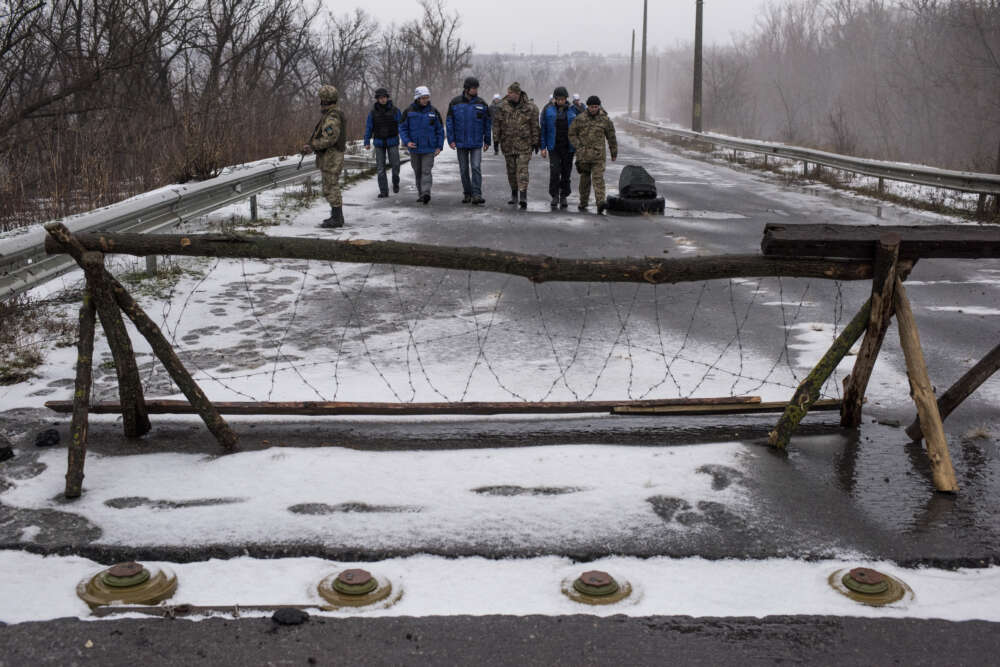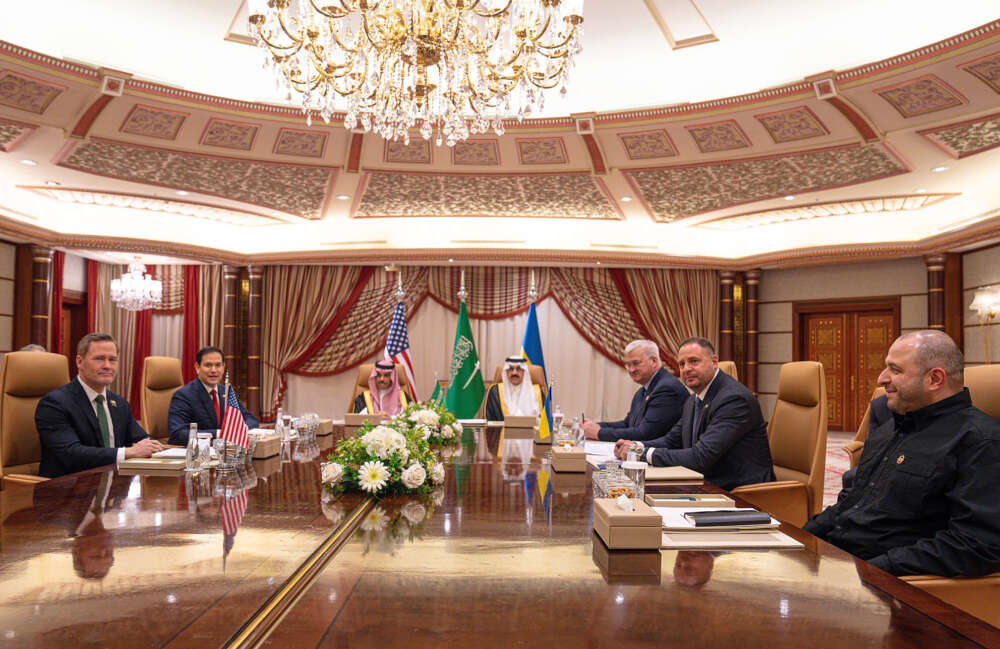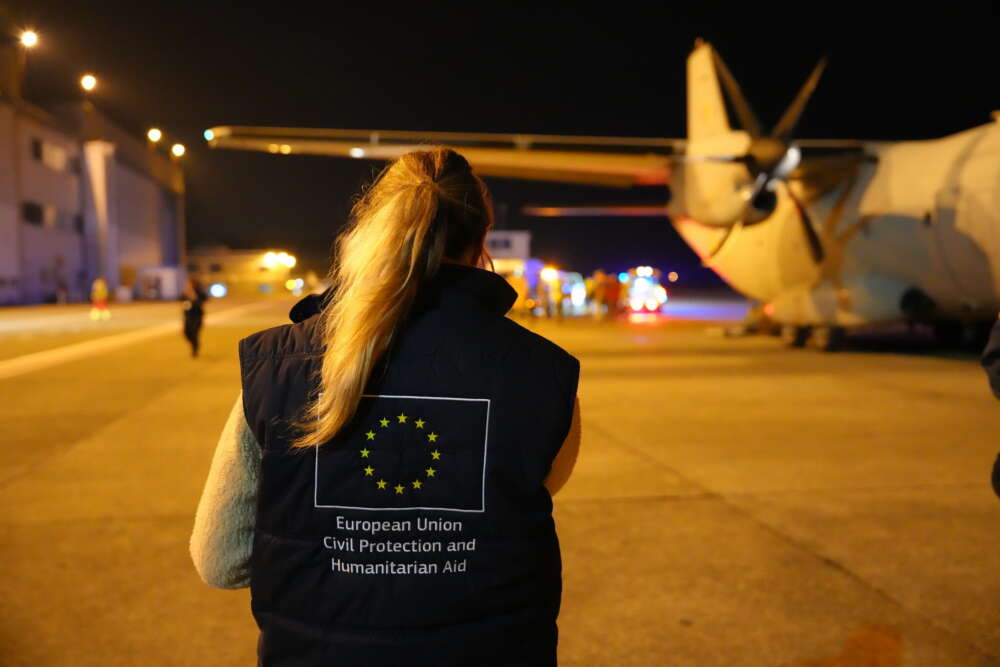Making the German Foreign Office Fit for Berlin’s New Role in the World

Is he up to it? Can he stand up to Putin or Erdogan without flinching? Tackle reforms in Europe? Manage an increasing number of crises? With ever-growing expectations for German foreign policy, experts and journalists alike have a lot of questions about the new German Foreign Minister Heiko Maas.
Yet if the new minister wants to effectively address any of these challenges, there is another crucial question he must tackle: does he have the courage and vision to reform his own ministry, a task that his predecessors shied away from?
Not that the ministry has not seen reforms in recent years. For instance, during the “Review2014” – a series of debates with experts, citizens, and diplomats – former Foreign Minister Frank-Walter Steinmeier openly posed the question, “What’s wrong with German foreign policy and what needs to be changed?” One of the most tangible results of the review was the creation of a new Directorate-General for Humanitarian Assistance, Crisis Prevention, Stabilisation, and Post Conflict Reconstruction. This was an important step; it has allowed for greater pooling of expertise, project funding, and systematic learning on crisis prevention and stabilization. However, it has been far from enough.
If German foreign policy debates in recent years have shown one thing, it is that funding and technical assistance alone do not solve political problems – in crisis-ridden countries or elsewhere.
What has been missing so far is the other half of the necessary reforms: German foreign policy must become more strategic and more political. Both Steinmeier and Sigmar Gabriel, Heiko Maas’s immediate predecessor, have made this point again and again. They did not, however, take the necessary steps to prepare their own ministry for this task. As of now, the Foreign Office still lacks the capacity to shift from its current default role as loyal follower of American, British, or French leadership to that of an active European shaper of global affairs. It is high time for that to change.
Employ enough diplomats to take on a leadership role internationally
First, Heiko Maas should reform the ministry’s human resources department. Almost every speech by a German diplomat over the last few years acknowledged that the world is “out of joint” and changing rapidly. This realization has yet to reach the foreign ministry’s HR department, despite the enormous challenges the Foreign Office faces.
Most importantly, Germany lacks diplomats. The Foreign Office has enough personnel for an era in which Germany did not seek to shape world affairs in any significant way. Today, Berlin plays a leading role in Ukraine and in Iraq; it has been a crucial actor shaping the EU’s policies on Iran, Russia, China, or India, and will remain so. In spite of this, the German federal budget currently allows for around 1,000 fewer Foreign Office posts than in 1990.
Since 2006, the budget of the Foreign Office has more than doubled, from 2.3 to 5.3 billion Euros. This is especially due to increased demands in the area of “peace and stability,” and not least because of the refugee crisis in recent years. In the same time period, the number of diplomats – i.e., the people charged with making sure the budget is spent sensibly – has risen by just five percent.
This lack of personnel is particularly glaring in countries affected by crises. In Iraq, for example, the German government is not only engaged militarily, but also spends several hundred million Euros per year on complex and politically sensitive stabilization projects for reconstruction, reconciliation, and the return of internally displaced persons. Yet, despite these sums and the highly complex political environment, only two German diplomats are stationed in Baghdad: the ambassador and one political analyst. In many embassies in Africa, the situation is even worse.
Allow for more specialization and improve knowledge management
In addition, the Foreign Office is rigidly clinging to the idea that all diplomats should be generalists and able to rotate into any post. Asking diplomats to be ready to switch between domestic and foreign postings is not a bad idea in itself; however, for it to work, the ministry needs a knowledge management system that exceeds a few pages of notes left behind by the respective predecessor. Otherwise, diplomats have to essentially start from scratch every three years. Furthermore, the notion that diplomats should not have a strong specialization is simply outdated and no longer feasible for the 21st century. While the Bundeswehr, the German army, often sends its officers on one-year language courses before they are stationed abroad, a German diplomat is lucky to have a three-week Arabic course before starting a job in the Middle East. And there is no guarantee that they will get the chance to use the skills and regional expertise they gain during that posting ever again.
Tackling all of these challenges is a herculean task, but given there is enough political leadership at the top, they should not be impossible to manage. The ministry could start by employing actual human resources professionals in the HR department, rather than diplomats on rotation as it does right now. On that basis, it could create entirely new career paths in communications or in stabilization project management, generating a whole new group of specialized and skilled professionals who are neither in constant rotation nor seek to ever become an ambassador. With regard to its core business, the Foreign Office needs to stop holding on to the illusion that the high number of crises in the world is merely temporary. This means finally creating a sufficient number of permanent posts. At the same time, it should be possible to hire employees from outside the foreign ministry on a flexible basis – not just for two years as is current practice, but for five or six years. This would also strengthen the exchange between ministries, academia, and the private sector — something that is much more common in other foreign ministries around the world.
Finally, digitalizing the entirety of the filing and knowledge management system (a much-needed endeavor) would allow numerous caseworkers to pursue more meaningful tasks than sorting files into dusty shelves or dealing with an outdated intranet.
Reform internal decision-making to enable strategic debate
Pursuing a more strategic foreign policy would also require reforming the way the Foreign Office prepares for and makes decisions. As in other German ministries, the Foreign Office’s decision-making processes are based on paper trails. A proposal from below passes through all the relevant divisions on its way up, until all perspectives have been merged into a common version that is submitted to the relevant state secretary or the foreign minister. This is the way it has worked for decades. It might have been more pertinent when German diplomats spent their time implementing the decisions others took for them, but this is the opposite of strategic or political foreign policymaking.
Today, German diplomats are expected to shape international affairs, come up with and stand up for their own ideas, and convince colleagues in Paris, Brussels, or New Delhi of them as well. For this to work, you need an internal culture that welcomes dissent; a culture that encourages diplomats to engage in controversial face-to-face discussions about the best strategy instead of negotiating a written consensus based on the smallest common denominator; a culture that sees creativity and controversy as added value rather than risk. Perhaps most importantly, you need a culture in which a minister receives several equally valid options to choose from, and actually takes a political decision. This kind of culture change requires a new management style that has to come from the top.
Strengthen modern communication tools and IT infrastructure
A third major project for the new minister is shaping the ministry into one that is strategic about how it communicates with the German public, with the Bundestag (the German parliament), and with the world. In an age characterized by Brexit and Trump, in which China grows stronger by the day and Putin ever more unscrupulous, the German Foreign Office has an important role to play as an actor taking a stand for Western, liberal, and democratic values. For this to work, however, the ministry’s messages need to reach their audiences. So far this has not been the case.
It is a sign of real progress that, in the past few years, the Foreign Office has gone beyond daily press work and started engaging in strategic communications. But while the development ministry has its own communications agency (not to mention the resources the defense ministry has at its disposal), communications at the Foreign Office is still in the hands of too few individuals. Furthermore, the recent hack was a stark reminder that the ministry’s IT infrastructure is antiquated. To really send a signal that he is willing to change all this, Heiko Maas could start his time in office by merging the press and strategic communications departments, and by asking parliament to fund modern IT equipment and smart digitalization strategies.
Have the courage for reforms
More diplomats, stronger specialization, digital knowledge management and modern technical equipment, decision-making processes that encourage new ideas, and more strategic communications: these are only a few of the urgent reforms that should interest both the new foreign minister and the German Bundestag. There are many more, such as how to adapt diplomatic training, how to strengthen the European External Action Service, and how to improve exchanges with other European diplomatic services.
Preserving a rule-based world order, reforming Europe, and managing crises in the world of Brexit and Trump, German foreign policy has become ever more important. Germany has the international recognition, financial means, and political weight to take on more responsibility in these areas. Transforming a ministry’s bureaucracy or even demanding more money and diplomats might not exactly be prestige projects for the new German foreign minister; however, in the long run none of the more prestigious parts of the job – none of the foreign visits and high-stakes negotiations – will be truly successful or effective if Heiko Maas does not seriously tackle the necessary reforms at home.
…
Sarah Brockmeier manages the PeaceLab blog on crisis prevention, a project supported by the German Foreign Office.
A German version of this commentary was published in the March 24 – 25, 2018 print edition of taz am wochenende.







